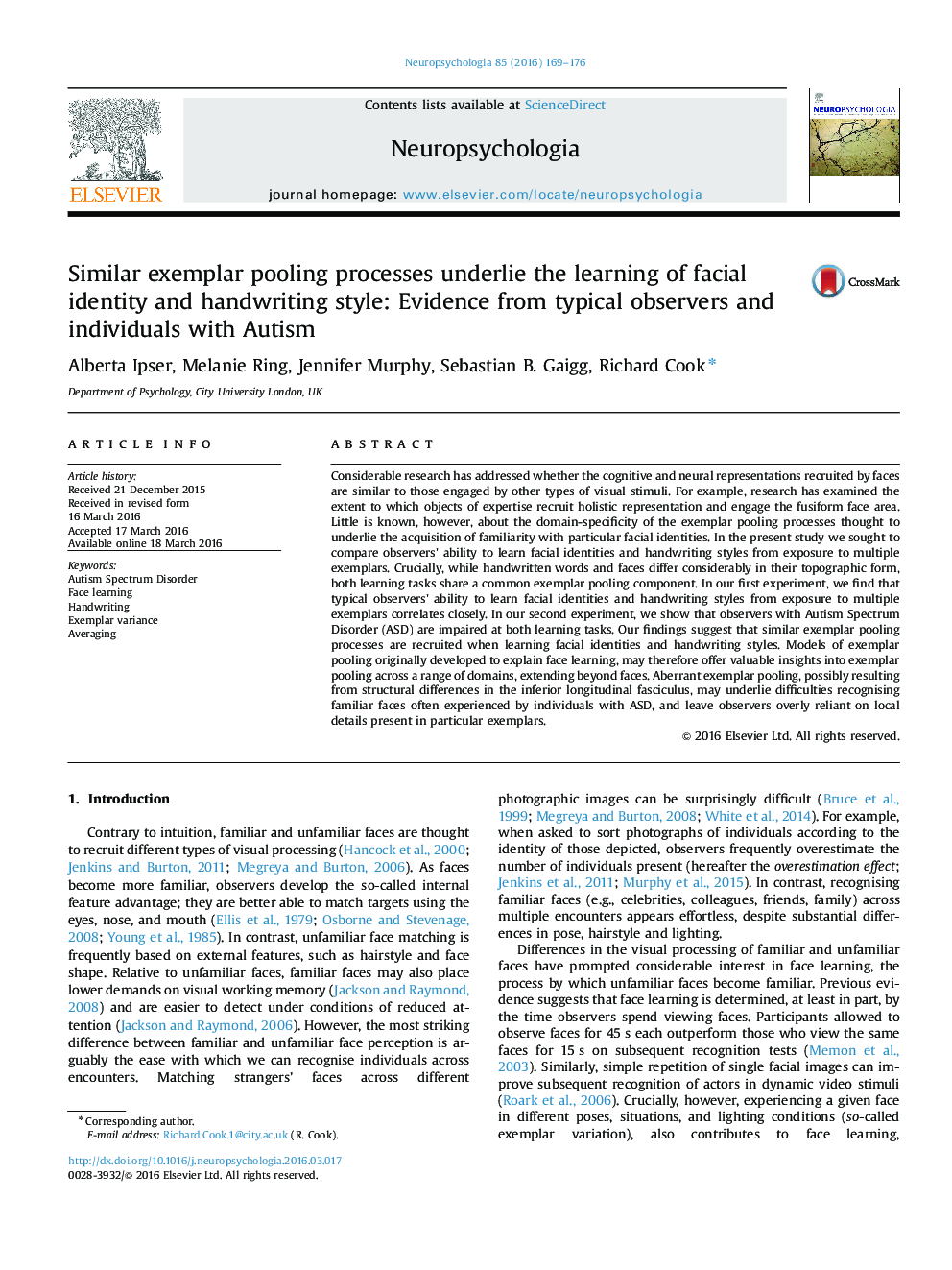| کد مقاله | کد نشریه | سال انتشار | مقاله انگلیسی | نسخه تمام متن |
|---|---|---|---|---|
| 7319180 | 1475569 | 2016 | 8 صفحه PDF | دانلود رایگان |
عنوان انگلیسی مقاله ISI
Similar exemplar pooling processes underlie the learning of facial identity and handwriting style: Evidence from typical observers and individuals with Autism
ترجمه فارسی عنوان
فرآیند جمع آوری نمونه مشابهی، یادگیری هویت چهره و سبک دست خط است: یادداشت از ناظران معمول و افراد مبتلا به اوتیسم
دانلود مقاله + سفارش ترجمه
دانلود مقاله ISI انگلیسی
رایگان برای ایرانیان
کلمات کلیدی
اختلال اسپکتروم اوتیسم، یادگیری چهره، دست خط واریانس نمونه، میانگین
موضوعات مرتبط
علوم زیستی و بیوفناوری
علم عصب شناسی
علوم اعصاب رفتاری
چکیده انگلیسی
Considerable research has addressed whether the cognitive and neural representations recruited by faces are similar to those engaged by other types of visual stimuli. For example, research has examined the extent to which objects of expertise recruit holistic representation and engage the fusiform face area. Little is known, however, about the domain-specificity of the exemplar pooling processes thought to underlie the acquisition of familiarity with particular facial identities. In the present study we sought to compare observers' ability to learn facial identities and handwriting styles from exposure to multiple exemplars. Crucially, while handwritten words and faces differ considerably in their topographic form, both learning tasks share a common exemplar pooling component. In our first experiment, we find that typical observers' ability to learn facial identities and handwriting styles from exposure to multiple exemplars correlates closely. In our second experiment, we show that observers with Autism Spectrum Disorder (ASD) are impaired at both learning tasks. Our findings suggest that similar exemplar pooling processes are recruited when learning facial identities and handwriting styles. Models of exemplar pooling originally developed to explain face learning, may therefore offer valuable insights into exemplar pooling across a range of domains, extending beyond faces. Aberrant exemplar pooling, possibly resulting from structural differences in the inferior longitudinal fasciculus, may underlie difficulties recognising familiar faces often experienced by individuals with ASD, and leave observers overly reliant on local details present in particular exemplars.
ناشر
Database: Elsevier - ScienceDirect (ساینس دایرکت)
Journal: Neuropsychologia - Volume 85, May 2016, Pages 169-176
Journal: Neuropsychologia - Volume 85, May 2016, Pages 169-176
نویسندگان
Alberta Ipser, Melanie Ring, Jennifer Murphy, Sebastian B. Gaigg, Richard Cook,
